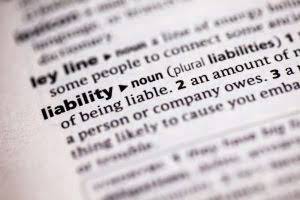
The company is unearned revenue a current liability to whom the prepayment was made to has the obligation of providing goods or services to the customer that has made the prepayment. As a result of this, unearned revenue is mostly classified as a short-term liability on a company’s balance sheet. Companies can’t record unearned revenues as sales because of the accruals concept of accounting.
By business model
- At the end of the month, the owner debits unearned revenue $400 and credits revenue $400.
- On the other hand, companies may receive money even if they haven’t transferred goods yet.
- The other company involved in a prepayment situation would record their advance cash outlay as a prepaid expense or an asset account on their balance sheet.
- Generally accepted accounting principles are also broken if revenue is not recorded in the same accounting period as expenses are paid.
- However, companies must ensure compliance with tax regulations, which vary across jurisdictions.
- When a customer makes a prepayment for goods or services that have to be delivered within one year, the unearned revenue accrued from such prepayment is considered current unearned revenue.
Remember revenue is only recognized if a service or product is delivered, a refund nulls recognition. A reversal, will adjust the liability and move the money through to income, do NOT do that. In the case of subscription services, revenue installments are made at different times during the contract.

Unearned Revenue and Accounting Periods
The expenses will be divided up and reported in the same period. So $100 will come out of the revenue account and you will credit your expense account $100. It is important to perform these adjusting entries to recognize deferred revenue according to the contract set in place.

Income statement

Accounting for unearned revenue on your financial statements is crucial, both as an accurate record of your financial position and to ensure you retain the right information for the ATO. Navigating these tax implications requires understanding federal and state tax laws and applicable international tax treaties for multinational enterprises. For example, a U.S.-based firm with overseas operations must consider foreign tax systems’ treatment of unearned fees, ensuring proper credit or deduction for foreign taxes paid. Misalignment between book and Partnership Accounting tax accounting methods can arise, necessitating adjustments to avoid discrepancies during audits.

Unearned revenue can be rent payments that are received in advance, prepayments online bookkeeping received for newspaper subscriptions, annual prepayments received for the use of software, and prepaid insurance. Deferred revenue is often gradually recognized on the income statement to the extent that the revenue is “earned” as a company delivers services or products. The payment is considered a liability to the company because there’s a possibility that the good or service may not be delivered or the buyer might cancel the order. Often referred to as deferred revenue or advance payments, unearned revenue reflects payments received before delivering goods or services. It appears as a liability on the balance sheet because it represents an obligation to fulfill the terms of a contract.
- Classic examples include rent payments made in advance, prepaid insurance, legal retainers, airline tickets, prepayment for newspaper subscriptions, and annual prepayment for the use of software.
- This liability is noted under current liabilities, as it is expected to be settled within a year.
- Current assets are receivables that a company will get within a year.
- Assets are usually recorded on the credit side of the balance sheet while liabilities and equity are recorded on the debit side.
- Trust is needed because it is rare for money and goods to exchange hands simultaneously.
- Baremetrics provides you with all the revenue metrics you need to track.
